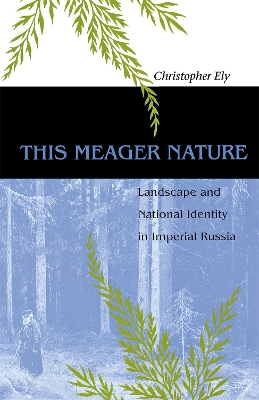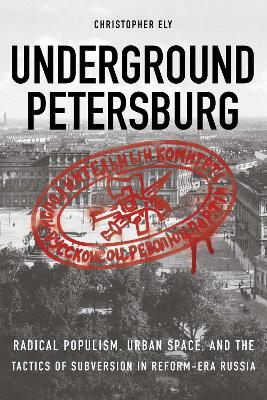NIU Series in Slavic, East European, and Eurasian Studies
2 total works
Boundless Russia, humble yet full of hidden grandeur—such visions of "the motherland" became crucial markers of Russian national identity. This Meager Nature is the first full-length study to trace the cultural construction of Russia's landscape during the nineteenth century, showing how artistic and literary representations of nature reflected and shaped Russians' ideas about themselves and their nation.
In the early 1800s, Russians commonly accepted the European judgment that their land lacked aesthetic value. That view changed with the outpouring of literary and artistic creativity that followed the century's political upheavals. Artists such as Aleksei Savrasov, Fedor Vasil'ev, Ivan Shishkin, and Nikolai Nekrasov turned to their native land and revealed the power of grey skies, vast open fields, and simple birch forests.
Russians came to embrace their land's modest beauty, which represented strength and hidden depths. The historical creation of Russia's sense of place resulted not so much from its citizens' encounters with their environment, Ely argues, as from their long-term struggle to distinguish Russia from Europe. The humble beauty of the Russian land served to assert the genuineness of Russia against the inauthenticity of western Europe. For those who embraced it, the "meager" beauty of the landscape provided a powerful means for experiencing and expressing Russian national identity.
Although the radical populist movement that arose in Russia during the reign of Tsar Alexander II has been well documented, this important study opens with questions that haven't yet been addressed: How did Russian radical populists manage to carry out a three-year campaign of revolutionary violence, killing or wounding scores of people, including top government officials, and eventually taking the life of the tsar himself? And how did this all occur under the noses of the tsar's political police, who deployed vast resources and huge numbers of officials in an exhaustive effort to stop the killing?
In Underground Petersburg, Christopher Ely argues that the most powerful weapon of populist terrorism was the revolutionary underground it created. Attempts to convey populist ideals in the public sphere met with resistance at every turn. When methods such as propaganda campaigns and street demonstrations failed, populists created a sophisticated urban underground. Linked to the newly discovered weapon of terrorist violence, this base of operations allowed them to live undetected in the midst of the city, produce their own weaponry, and attempt to ignite an insurrection through violent attacks—putting terrorism on the map as a technique of political rebellion. Accessible to non-specialists, this insightful study reinterprets radical populism, clarifying its crucial place in Russian history and elucidating its contribution to the history of terrorism. Underground Petersburg will appeal to scholars and students of Russia, as well as those interested in terrorism and insurrectionary movements, urban studies, and the sociology of subcultures.

